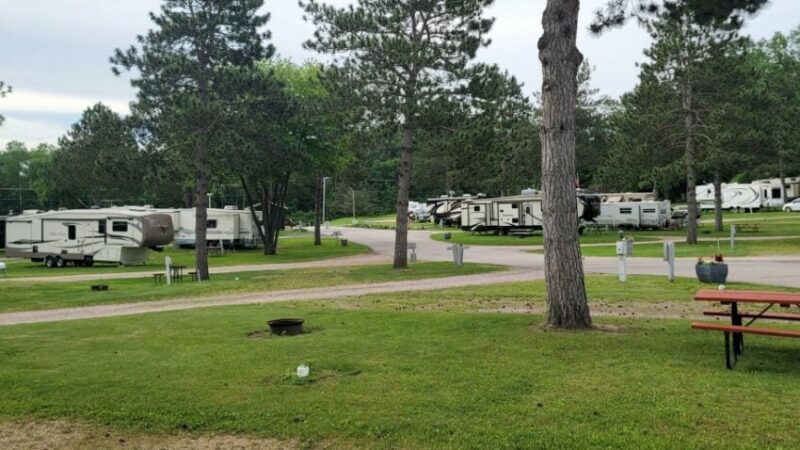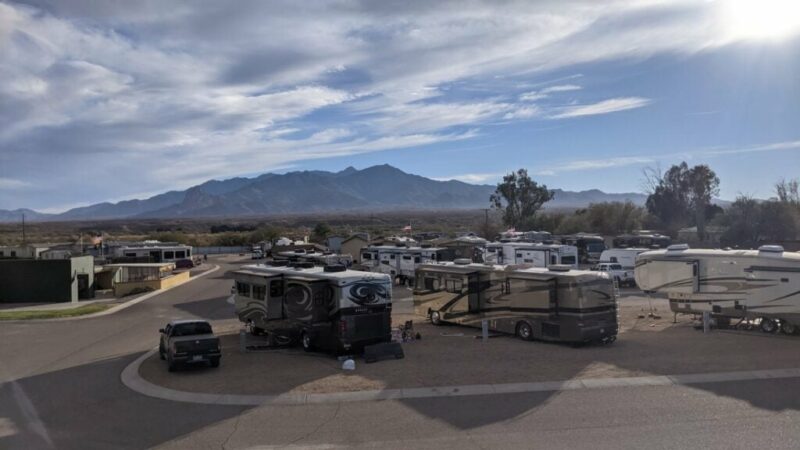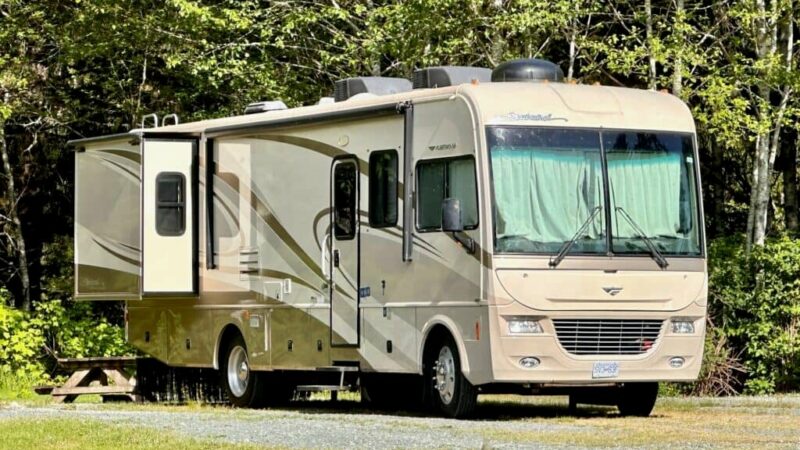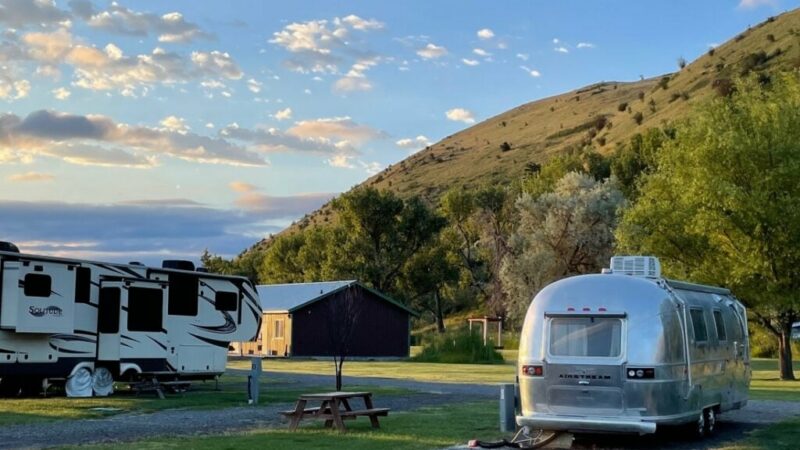3 Things RVers Should Do At The End Of Camping Season
Sponsored by Wholesale Warranties
3 Things Every RVer Should Consider When Camping Season Ends
The end of the camping season is usually bittersweet. The chill in the air and the change of seasons brings an excitement of kids going back to school and the upcoming holiday season. But for many, it also means it’s time to put away the RV, effectively putting an end to campfires, scenic drives, and the carefree respite of summer.
Here are a few reminders of the common (and not-so-common) tasks RVers should do when their camping season ends. And before you “no end in sight” full-timer RVers exit out, a few of these tips might end up saving you big too, so read on!
1. Purchase your RV protection before the year changes
RVers that didn’t purchase an RV warranty when they bought it but have considered doing so should remember that once the calendar page turns to a new year, your RV becomes one year older. This means that not only will your price go up, but the length of term you’re eligible for will likely go down.
Many buyers don’t realize that you can still get an RV warranty on a used RV. If your RV is more than a few years old and you wait too long, you might fall completely out of eligibility when the new year arrives, so don’t put it off.
We reached out to Wholesale Warranties for some guidance on this topic. They provided us with a couple of valuable and eye-opening nuggets to share.
“With a new year, every RV on the road will be considered one model year older, regardless of when you purchased the unit. That means all prices on extended warranties will be higher once 2023 hits. So, if you haven’t purchased by January 1st, 2023 your original quote will significantly increase.”
For everyone that bought an RV in 2022 but weren’t yet convinced to buy an extended RV warranty for the dealer, this tidbit from Wholesale Warranties is even more interesting.
“Note that if you purchased a 2022 unit in 2022, and you wait until 2023 to purchase an extended service contract on the vehicle, your unit will be considered used because it’s out of the original factory warranty. Before your policy can be activated, you’ll have to have a full inspection done.”
Finally, Wholesale Warranties offered this advice for RVers planning to winterize their RV and check into a warranty during the spring thaw:
“We know it can be tempting to wait until you’re actively using your RV again to purchase coverage, and we’re happy to help you out in the new year too, but time really does matter when it comes to your RV coverage. Not only will you pay more for the same (or less!) coverage in the new year, but we actually see the bulk of our claims when RVers are de-winterizing their units in spring. RVs aren’t made to sit, and failures do happen during the cold months. If you purchase your RV warranty now, those springtime repairs can be covered by your policy—but if you wait, you’ll be left with the bill.”
We recommend getting a free RV warranty quote sooner rather than later, so you can save money and be better prepared next season when it’s time for RVing.
2. Prep your RV for winter
Preparing your RV for winter when the camping season ends can be different for every RVer, as it hinges on factors like your locale, and whether you are a full-time RVer, a part-timer, or a weekend or seasonal camper.
Winterize
Those in more northern climates that are truly putting the camper or RV away for the camping season must winterize their RV. We’ve put together several articles on the subject here:
- A Complete RV Winterizing Checklist
- How Much RV Antifreeze Do I Need?
- How To Winterize Your RV
- Revolutionize How You Winterize Your RV
RVers in southern climates that rarely see freezing temperatures should still observe some recommendations for RV storage and bad weather preparedness just in case.
- For motorized RVs, fill the fuel tank completely and update wiper fluid reservoir to a temperature-appropriate mixture.
- Top off any hydronic heating system fluid, such as used for Aqua-Hot or Hydro Hot systems, and ensure the heating system or furnace is prepared to come on at a pre-set temperature in the event of freezing, as well as any tank heaters or warmers that the RV has.
- Alternatively, one or more small space heaters can be used in strategic locations, often in your RV’s basement, to add enough heat to the area to prevent tanks and other plumbing from freezing.
- Keep the RV plugged in, and battery levels topped off, if applicable.
- Remember, failures are common after months of storage, so add learning more about RV protection to your to-do list.
Air up tires
Whether you own a travel trailer, fifth wheel, or motorhome, be sure to air up tires to their specified maximum pressure. Even if you operate on a lower PSI based on weight charts, for storage, fill your RV tires to their max allowed PSI.
Full-timers
Many full-time RVers will simply head toward warmer climates during the colder months at the end of camping season. For those that prefer to enjoy the colder weather and less crowded campgrounds, here a few reminders.
- Swap out your washer fluid for a winter mixture. Whether on your truck or motorhome, be sure and get a washer fluid that is appropriate for the weather you’ll be staying in.
- Get those tire chains out and ready. Some roads in mountainous areas require snow chains. Make sure you have them and can access them easily.
- Consider some type of RV skirting. Products such as AirSkirts can be used to keep heat in and cold out when camped at your winter campsite.
- Pay close attention to provisions. Some of the best campgrounds can be difficult to get to or leave in inclement weather. Be sure you have backup provisions on board.
- Save some cash these winter months when you lock in your RV warranty, and let the policy pick up repair bills that come up this season.
3. Don’t forget about open enrollment
RVers that pay attention to health insurance know that Open Enrollment tends to coincide with the end of camping season. What many of those RVers do not know is that obtaining proper health insurance for RVers is no small task.
Have you domiciled in South Dakota, or Texas, or Florida If you don’t have the right insurance, you won’t be covered for an accidental fall in another state and will have to pay the emergency room bills out of pocket. Think about that.
Don’t let your camping season end prematurely by having to hustle back to your home state because your health insurance won’t cover you elsewhere. Before you jump on the Medicare Open Enrollment bandwagon, make sure you are very clear about what is covered and not covered when RVing.
The only way to know what you are getting into is to talk to the experts at RVerInsurance.com. In addition to offering RV warranty and RV insurance services, RVer Insurance Exchange specializes in Health Insurance for RVers. They are real RVers, helping other RVers and sharing knowledge at no cost to you. Know before you go what your policy will and will not cover, and prepare today so you can enjoy the next camping season.
Conclusion
Like every season, the end of the camping season brings change and challenges. Make sure you are ready to hit the ground running when camping season opens up again in the spring.
Take care of your RV, and it will take care of you! Winterize properly, and get an RV warranty to cover the unexpected. Don’t forget to take care of your health as well, so you’ll be around to enjoy the next camping season!
The post 3 Things RVers Should Do At The End Of Camping Season appeared first on RV LIFE.








